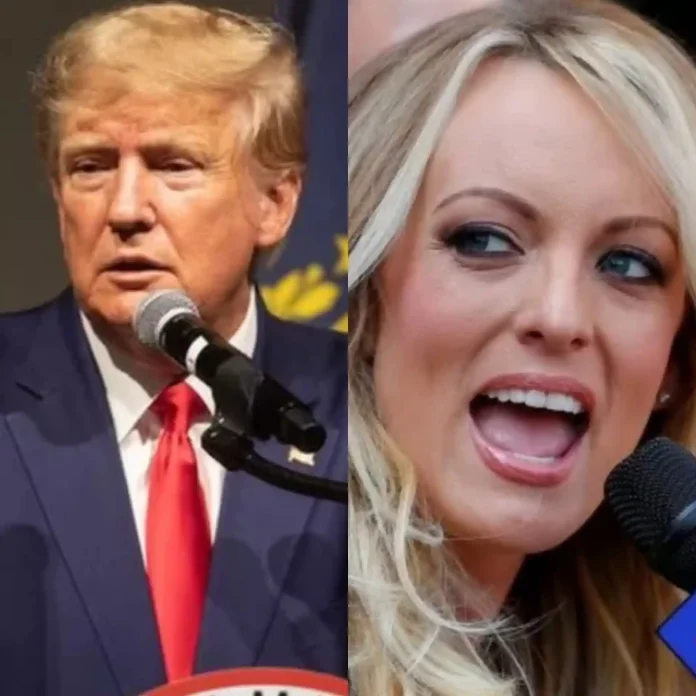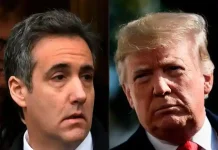New York prosecutors have invited ex-US president Donald Trump to testify to a grand jury over the Stormy Daniels case, his lawyer has confirmed.
The Manhattan district attorney has investigated Mr Trump for five years over alleged hush money payments made on his behalf to Stormy Daniels an ex-porn star.
Inviting Trump to a grand jury indicates he could face charges.
Ms Daniels alleges she got $130,000 before the 2016 election in exchange for silence about an alleged affair with Trump but the former US president denies they had sexual relations.
A grand jury is set up by a prosecutor to determine whether there is enough evidence to pursue charges in a case.
A grand jury is usually held in secret, and several former aides of Trump have reportedly testified in this case.
If prosecutors proceed, it could be the first criminal case ever brought against a former US president.

Stormy Daniels’ case is one of several cases in which Trump is currently being investigated, although he has not yet been charged in any and denies wrongdoing in each.
The case stems from an allegation that Mr Trump directed his former lawyer to pay Stormy Daniels, an adult film actress, to stop her speaking out about an alleged affair.
The lawyer, Michael Cohen, was later jailed on multiple charges. Cohen testified under oath that Mr Trump had directed him to make the payment of $130,000 (£110,000) just days before the 2016 election.
Mr Trump has acknowledged reimbursing the payment but denied the affair and any wrongdoing regarding campaign laws.
The former president could face two charges for his actions, Ms Christian said.
They come as the 76-year-old prepares for another run for the White House seat.
If the Manhattan district attorney’s office has asked Mr Trump to appear, that indicates the office may be considering indicting the former president, Catherine Christian, a former financial prosecutor in District Attorney Alvin Bragg’s office, told the BBC.
Mr Trump, she said, is unlikely to accept the opportunity to testify.
‘Most people decline for a host of reasons. You waive immunity, you open yourself up, if you lie, to perjury charges,’ she said.
‘You’re also letting the district attorney know what your defence is.’












